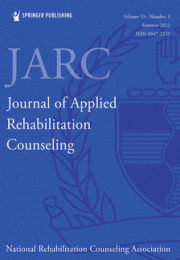Developing Intercultural Competence in a Complex Organizational Structure: A Case Study Within Quebec’s Workers’ Compensation Board
Background: Wanting to offer culturally sensitive services to a diverse population, rehabilitation counsellors employed by a workers’ compensation board (WCB) in a Canadian province asked the researchers to provide them with support to develop their intercultural competencies. A collaborative research design was suggested as a potential way to make full use of experiential knowledge. This article presents an action research approach in which study participants were also active in the development of new knowledge and sought to become key players in organizational change. Objective: The objective of this article is to present the steps involved in the co-construction of an intercultural communication support tool and to describe the mechanisms and structure put in place to develop the tool. Methodology: A working group (WG), a steering committee (SC) and a validation group (VG) were created, and each met on a regular basis over approximately 18 months. Several methodological approaches and data collection tools were used: participant observation charts, diaries, an “intercultural situation” workshops. Results: A total of 28 people participated in the project, in addition to the three researchers. The study showed the importance of integrating three dimensions—the individual, collective, and organizational—into the definition of intercultural competence. It soon became evident in our study that a self-reflection process grounded in a collective learning approach was the core component of the entire process of developing intercultural competencies. This finding went well beyond the production of any materials (practical guides, checklists, and supporting documents) that resulted from this process.
Membres et équipe SHERPA
Daniel Côté
Institut de recherche Robert Sauvé en santé et en sécurité du travail (IRSST); Université de Montréal

